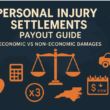Over the objections of medical ethicists, Dr. Henry Heimlich continues to push “malariotherapy” as a treatment for AIDS.
Mekbib Wondewossen is an Ethiopian immigrant who makes his living renting out cars in the San Francisco area, but in his spare time he works for Dr. Heimlich, doing everything from “recruiting the patients to working with the doctors here and there and everywhere,” Wondewossen says. The two countries he names are Ethiopia and the small equatorial nation of Gabon, on Africa’s west coast.
“The Heimlich Institute is part of the work there—the main people, actually, in the research,” Wondewossen says. “They’re the ones who consult with us on everything. They tell us what to do.”
Wondewossen says that the project does not involve syringes full of malaria parasites. “We never induce the malaria,” he says. “We go to an epidemic area where there is a lot of malaria, and then we look for patients that have HIV too. We find commercial sex workers or people who play around in that area.” Such people are high-risk for HIV, and numerous studies show the virus makes its victims more vulnerable to malaria.
A key to containing malaria is speedy treatment. In the most resource-poor areas, clinicians who lack the equipment necessary for diagnosing malaria will engage in presumptive treatment at the first signs of fever. This, says Wondewossen, runs contrary to Heimlich’s interests. What physicians in Africa usually do “is terminate the malaria quickly when someone gets sick,” he says. “But now we ask them to prolong it, and when we ask them to do that, the difference is very, very big.”
Untreated malaria is horrible and includes periods of 105-degree fever, excessive sweating followed by chills and uncontrollable shivering, blinding headaches, vomiting, body aches, anemia, and even dementia. Heimlich’s malariotherapy literature recommends the patient go two to four weeks without treatment. Delay in treatment, warns the CDC, is a leading cause of death.
Wondewossen say that the researchers involved in the study are not doctors. He refuses to name members of the research team, because he says it would get them into trouble with the local authorities. “The government over there is a bad government,” he says. “They can make you disappear.”
Wondewossen won’t reveal the source of funding for this malariotherapy research. “There are private funders,” he says. But as to their identity? “I can’t tell you that, because that’s the deal we make with them, you know?” He scoffs at the question of whether his team got approval to conduct this research from a local ethics review board. Bribery on that scale, he says, is much too expensive: “If you want the government to get involved there, you have to give them a few million—and then they don’t care what you do.”
Heimlich claims to believe in the importance of evaluating patients through every stage of malariotherapy, but without being present for the onset of malaria his researchers would have a difficult time tracking the disease’s effect on the patient’s viral load. That doesn’t deter him from looking to the future. Wulsin’s report contains a forecast for a clinical trial in Africa that would begin by enrolling 75 patients in 2007, then another 20 to 30 in 2008. These projections are based, however, on the premise that current trials will bear out Heimlich’s theory.
In particular Heimlich targeted South African gold mines, which employ a large population of poor, AIDS-ravaged miners who live in prison camp–like conditions. Wulsin told me that over the last several years Heimlich has sought to convince South African gold mining companies of the merits of malariotherapy, in the hope that they would allow him to conduct clinical trials on the miners, many of whom are HIV-positive. Wulsin was to have a role in this effort. She says that in 2002 the gold mines sent doctors to visit Heimlich in Cincinnati to discuss the prospects for a study, but the talks eventually broke down over disagreements over who would pay for what. According to Wulsin, Michele Ashby—then the chief executive of Denver Gold Group, an international consortium of gold mines—was acting as a broker between Heimlich and the mines. Wulsin’s report notes that Heimlich spoke at the Mining Investment Forum in 2002, in Denver, where Ashby introduced him to “12 CEOs who operate in South Africa and other locations.” When I called to ask Ashby about her role in malariotherapy, she hung up on me.
“I think the idea was that here is what you call a captive audience,” explains Wulsin. “You don’t have to hospitalize them.” This eliminated one of the most prohibitive costs, and though Wulsin doesn’t mention it, the subjects’ remote location made interference from regulators less likely.
Wulsin had been lured to the Heimlich Institute with the understanding that she’d be groomed to take over its presidency from Heimlich himself. After a few months, however, she began to suspect that this honor had a string attached: She had to produce a document supporting further malariotherapy trials. Instead her report proposes significant upgrades in safeguards, oversight, and accountability before moving forward. Wulsin even suggests changing the name “malariotherapy” to “immunotherapy,” suggesting that the very treatment itself was tainted.
In December 2004, the day after issuing a draft of her report (which has been obtained by Radar), Wulsin was fired.
I requested an interview with Heimlich through his spokesman Robert Kraft, but I was turned away, ostensibly because the issues I wanted to discuss were similar to those raised by Peter Heimlich and posted on his website.
This April, Henry Heimlich came to Chicago, where I now live, to give a speech before a local organization called the Save a Life Foundation. I caught him in the hall afterward. When I told him I was a reporter, his face lit up. I guided him to a table, but before I could ask him to sit he asked my name.
I told him, and he recoiled. The urbane manner of a moment earlier vanished. He became petulant, scowling. My first question, the softest of the group, didn’t bring a direct answer. “You’re fishing around with nonsense,” he said, obviously aware that I was reporting some of his son’s charges.
I reminded him that in the past he’d said he welcomed criticism. He was drifting away, so it was my last chance to engage him. I dropped the name he dreaded most: Peter.
Heimlich’s face went ashen, and he mumbled something I couldn’t make out. Then he turned toward to the conference room. Before opening the door, he turned back. “You should be ashamed of yourself,” he said.
Later I would e-mail a list of questions to Kraft, who responded that Heimlich would not be giving answers.
Janet Heimlich, Henry’s daughter and Peter’s sister, grudgingly agreed to an interview. She said Peter had “cut himself off from the family.” Though she hasn’t personally looked into the subjects, she wasn’t troubled by malariotherapy. “It’s controversial, and he has critics,” she said, “but he has had critics his whole career. That’s just par for the course. He had critics when he came out with the Heimlich maneuver for choking.”
She added that she had talked to “a lot of people who have strongly supported my father’s work, including malariotherapy.”
But when I asked her for the names of qualified experts who could endorse Heimlich’s positions, she declined. “I have not spent time researching this the way my brother has,” she said. “He has handed you—as well as many other journalists who have bitten—on a silver platter all these sources who have a huge ax to grind with my dad.”
In pure marketing terms, the vaunted Heimlich brand is losing value. Bill Montgomery, the official who chaired the 1985 conference in which the Heimlich maneuver was ruled to be the best choking rescue, notes that by 2000 the AHA national guidelines recognized chest thrusts and back slapping as appropriate alternatives to be used in sequence with the Heimlich maneuver. Chest thrusts create more force than the maneuver, according to recent studies, and may well become the preferred response in the future.
Peter Heimlich knows that by exposing his father he invites speculation—and criticism—about his motives. He and his wife Karen are bracing themselves for it.
“We’re both private people by nature,” says Peter. “We’re not grandstanders. We’re a couple of fabric business owners, and we uncovered this big rat’s nest. We never made any threats. We never attacked anybody.” Still, he knows that armchair psychoanalysts will have a field day with him. Peter says such speculation misses the point.
“Do I wish I had a more loving father?” he asks. “I’ve seen friends who have loving fathers, and it seemed really strange to me. I’d say, ‘Gee that would be nice.’ Am I bitter? Not at all. We all get the hand we’re dealt. I think I was much worse before I found out this stuff. At least I know what’s real now.”
In the beginning he was angry with his parents, but as the scope of his father’s deception became apparent, it became a battle of wills: Henry’s efforts to extend the Heimlich legacy versus Peter’s efforts to destroy it.
“The last thing I wanted,” says Peter, “was to make this my life’s work. It only became my life’s work because I had no choice, because if I had let go I would have had to live with the consequences.”
I ask Peter if he hates his father.
“He’s a stranger!” Peter exclaims. “Do I love him or do I hate him? I don’t even know who this guy is. Do I hate what he’s done? Yes. That’s easy, because it’s crazy, it’s destructive.”
To hear Peter tell it, there’s nothing complicated in his Inspector Javert–style pursuit of his own father.
“Who wouldn’t want to know why somebody is keeping a secret?” he asks. “That’s part of the appeal. Why didn’t they want me to know this? And the only answer is they knew that if I found out I’d blow the whistle.



